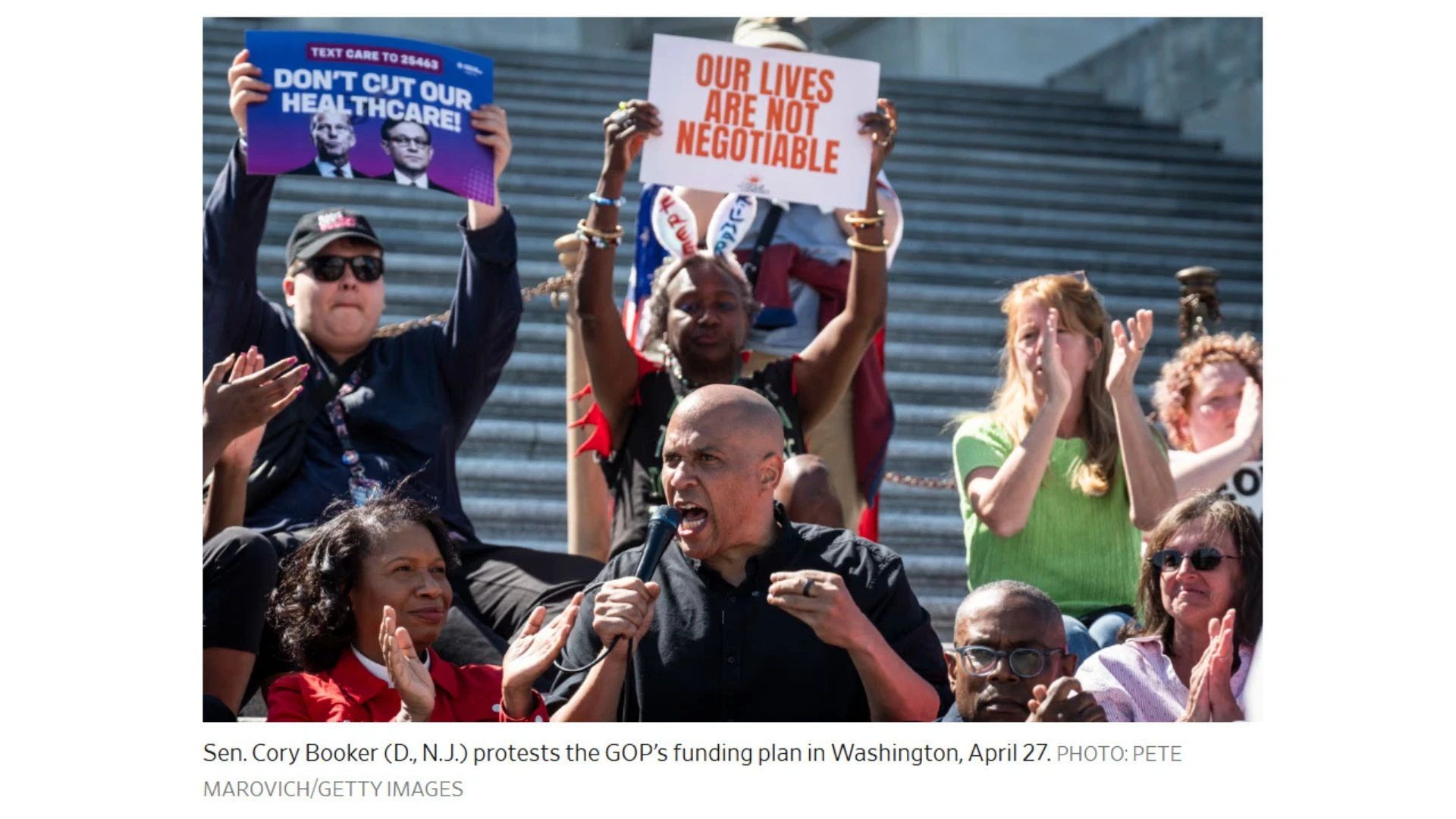Republicans, including Trump, won’t fix anything if it costs votes.
Ass Backward Logic from the Wall Street Journal
Check out the opening gambit in the WSJ article on The Politics of Medicaid Reform
If Republicans are too timid, costs will expand and Democrats will benefit at the ballot box.
Congress has an opportunity to reform Medicaid, the nation’s third-largest, and most flawed, entitlement program. Done right, reform could protect the vulnerable, promote private coverage and save hundreds of billions of dollars. Done wrong, it won’t reduce federal spending and will hurt Republicans at the ballot box by making more voters dependent on government welfare.
Medicaid’s financing is fundamentally broken. Because of ObamaCare, the federal government pays $9 for every $1 of state spending on able-bodied working-age adults, compared with roughly $1.33 for pregnant women and disabled children. That incentive pushes states to favor healthy adults over the vulnerable in enrollment and access to providers and better services.
States also use mechanisms such as the Medicaid provider tax to distort federal-state fiscal responsibility. States tax hospitals and insurers, then use that revenue to increase Medicaid payments back to the same entities. These inflated payments trigger higher federal matching funds. The result: States recycle money through the system and extract substantial federal money with little real state contribution.
To cover their 10% share of ObamaCare expansion costs, many states rely on provider-tax schemes—creating no incentive to spend responsibly and undermining the federal-state Medicaid partnership. Some states, such as California, use these mechanisms to extend Medicaid to illegal immigrants, shifting the cost to federal taxpayers.
Ten Republican-led states resisted ObamaCare’s Medicaid expansion and kept Medicaid’s focus on the most vulnerable. Low taxes and limited welfare have attracted people to move to these red states, which include Florida, South Carolina and Texas.
But if Republicans enact modest changes—particularly work requirements for able-bodied adults to receive benefits—without fixing Medicaid’s core financing problems, Republican governors will have political cover to tap into the federal Medicaid money they have left on the table by not expanding. If Congress fails to reduce ObamaCare’s 90% reimbursement and doesn’t limit Medicaid financing gimmicks, expect a wave of new expansions blessed by a bill passed by a Republican Congress and signed by President Trump.
If Congress doesn’t enact these structural reforms, the Medicaid-industrial complex will collude with the states for richer payments funded through higher debt, inflation and taxes. In some states, Medicaid payments to hospitals now approach or exceed twice the Medicare rate, which could threaten seniors’ care. And without reform, states will continue to prioritize healthy working-age adults ahead of children and the disabled. Meanwhile, Republicans will have missed an opportunity to restore Medicaid’s core mission: providing a safety net for the vulnerable, not corporate welfare for the healthcare industry.
Republicans who ran on reining in Washington’s excesses and defending the needy shouldn’t preserve Medicaid’s financing inequities and money-laundering schemes. Fix the incentives now or watch federal spending—and Democratic turnout—soar on the back of a program conservatives failed to reform when they had the chance.
What a Hoot
The authors are correct on what ails Medicaid. But the lead sentence, “If Republicans are too timid, costs will expand and Democrats will benefit at the ballot box,” is ass backwards.
Republicans don’t want the blame for fixing Medicaid.
Look no further than the Newsweek column Republicans Warn Trump Admin About Medicaid Cuts
As Republicans debate how to rein in federal spending following President Donald Trump’s latest round of tax cuts, a proposed shift in Medicaid funding is drawing resistance: not from Democrats, but from within the GOP.
Moderate and battleground-district Republicans, including Representatives Mike Lawler of New York and Don Bacon of Nebraska, are publicly warning party leaders not to go too far in overhauling the safety net.
The proposal at the center of the debate is known as a “per capita cap,” a policy that would limit federal Medicaid payments to a set amount per enrollee. Though supporters argue it wouldn’t technically cut benefits, critics say it would gradually shift costs to states and potentially reduce access to care.
GOP leaders say no final decision has been made, and the party remains divided. Lawmakers in politically vulnerable seats are warning that any proposal perceived as a cut to Medicaid could be harmful in 2024 swing districts.
Representatives Lawler and Bacon are part of a loose coalition pushing leadership to focus on other cost-cutting measures, such as fraud reduction and administrative streamlining, that wouldn’t reduce access to care.
In addition to Lawler and Bacon, other Republicans have signaled caution.
Representative Jeff Van Drew of New Jersey said he would support “guardrails” on Medicaid growth but opposes cutting the 50 percent federal match for traditional Medicaid.
House Speaker Mike Johnson has not publicly committed to including the caps in a budget deal, and negotiations are expected to continue through the summer.
“Some Republicans are growing concerned – and rightfully so,” Beene said. “If their state is dependent on that funding, any cap put on federal Medicaid spending could create a domino effect that would hurt beneficiaries in their state.”
Thompson said the states that rely most heavily on Medicaid expansion are Republican strongholds.
Buying Votes for a “Big Beautiful Bill”
Trump will buy as many votes as it takes to get support for his “big beautiful bill”.
Number one on the table is restoration of State and Local Tax (SALT) deductions. This benefits Democrats and Republicans in Big Blue states, especially New York.
The Committee for a Responsible Budget estimates full restoration of SALT would cost $920 billion over 10 years.
The TCJA tax extension will cost $3.9 trillion.
Why stop there?
Trump wants to but more votes with no tax on tips, no tax on Social Security benefits, and new deductions for interest on auto loans.
No DOGE to the Rescue
To pay for all of this DOGE has come up with $150 billion in alleged savings of which only about $12 billion is real.
For discussion, please see How Much Money Has DOGE Really Saved, and Where Will it Go?
Let’s do some fact checks on DOGE claims and reality.
Trump Promises $1 trillion in Defense Spending for Next Year
Also note Trump Promises $1 trillion in Defense Spending for Next Year
Even bigger budget deficits are now in store due to the first $1 trillion defense budget.
Rather than do the right things, Republicans will buy whatever votes they need to pass a budget-breaking monstrosity.
Meanwhile, the lies that it will pay for itself continue along with praise from the cult.
For discussion of the truly absurd, please see Lutnick Says Tariffs Can Eliminate the IRS and Balance the Budget
Trump won’t drain the swamp. He is the swamp willing to tell whatever lies he needs to get his big beautiful bill passed.
This post originated on MishTalk.Com
Thanks for Tuning In!
Mish







